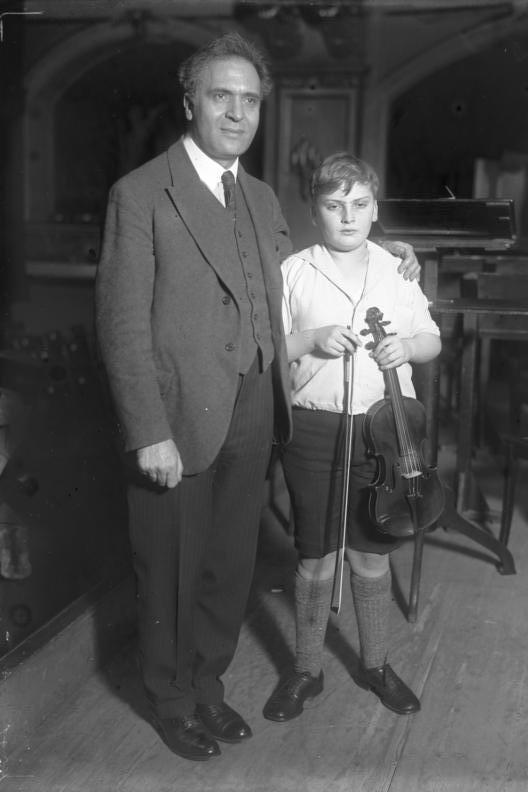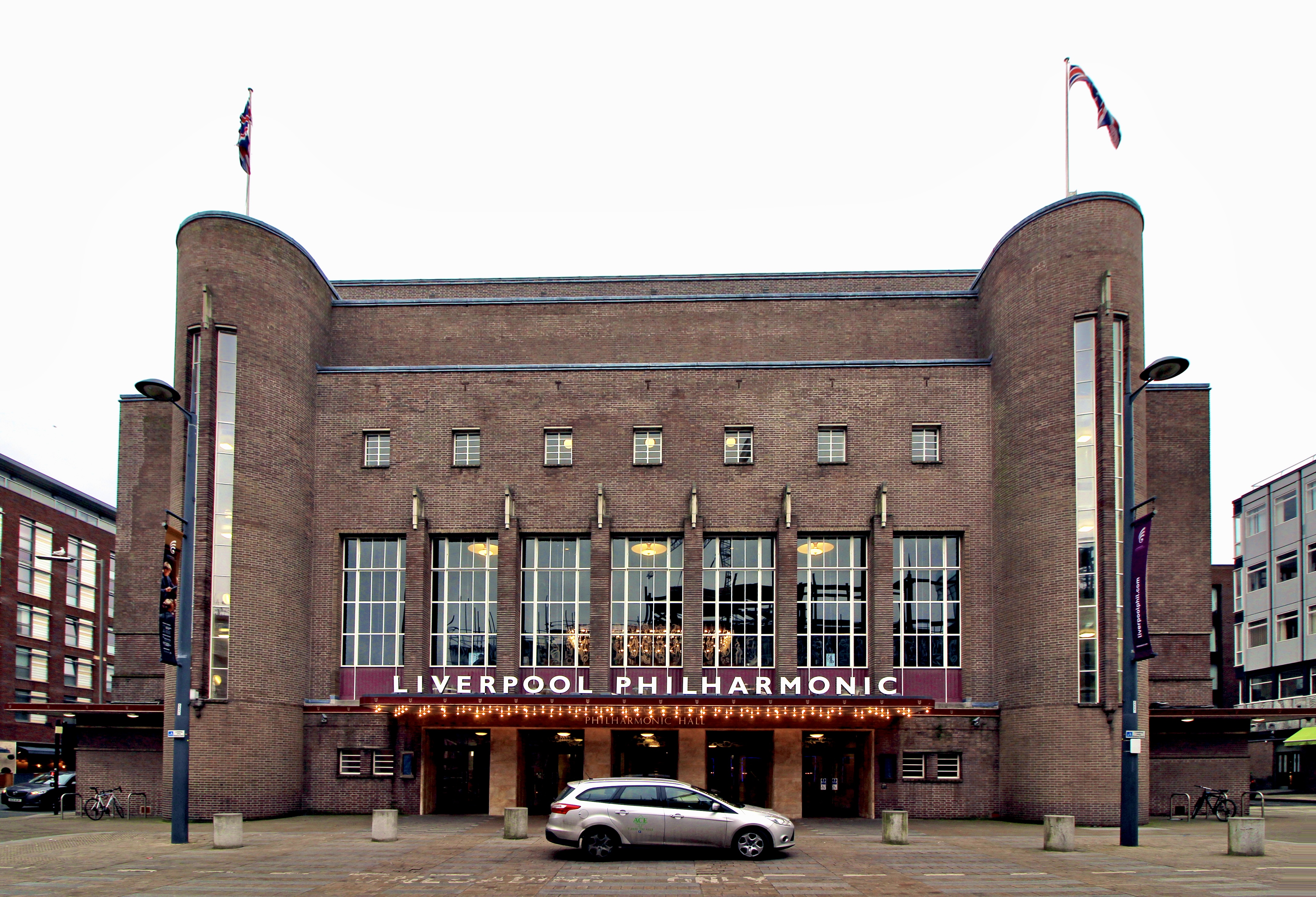|
Symphony No. 7 (Simpson)
Robert Simpson composed his Seventh Symphony in 1977, the same year he completed his Sixth Symphony. Composition was begun 26 September and concluded 23 October in Chearsley. The work is dedicated to Hans Keller and his wife, Milein Keller, and was first performed by the Royal Liverpool Philharmonic Orchestra, conducted by Brian Wright at the Philharmonic Hall, Liverpool on 30 October 1984. It is a one-movement work of approximately 28 minutes duration, and since its first performance it has become one of Simpson's most frequently heard symphonies. Structure The work is structured in one continuous movement, albeit in three distinct sections. The first of these takes up over half the symphony in duration and begins ‘Sostenuto, marcato’, gradually quickening in tempo until a fugato marked ‘Intensivo’ is reached. The second section is a tranquil adagio, which gives way to the third and final part: a tempestuous Allegro finale. Instrumentation Simpson scored his Sevent ... [...More Info...] [...Related Items...] OR: [Wikipedia] [Google] [Baidu] |
Robert Simpson (composer)
Robert Wilfred Levick Simpson (2 March 1921 – 21 November 1997) was an English composer, as well as a long-serving BBC producer and broadcaster. He is best known for his orchestral and chamber music (particularly those in the key classical forms: 11 symphonies and 15 string quartets), and for his writings on the music of Beethoven, Bruckner, Nielsen and Sibelius. He studied composition under Herbert Howells. Remarkably for a living contemporary composer, a Robert Simpson Society was formed in 1980 by individuals concerned that Simpson's music had been unfairly neglected. The society aims to bring Simpson's music to a wider public by sponsoring recordings and live performances of his work, by issuing a journal and other publications, and by maintaining an archive of material relating to the composer. In 2021, he was featured as '' Composer of the Week'' on BBC Radio 3. Biography Simpson was born in Leamington, Warwickshire. His father, Robert Warren Simpson, was a descen ... [...More Info...] [...Related Items...] OR: [Wikipedia] [Google] [Baidu] |
Symphony No
A symphony is an extended musical composition in Western classical music, most often for orchestra. Although the term has had many meanings from its origins in the ancient Greek era, by the late 18th century the word had taken on the meaning common today: a work usually consisting of multiple distinct sections or movements, often four, with the first movement in sonata form. Symphonies are almost always scored for an orchestra consisting of a string section (violin, viola, cello, and double bass), brass, woodwind, and percussion instruments which altogether number about 30 to 100 musicians. Symphonies are notated in a musical score, which contains all the instrument parts. Orchestral musicians play from parts which contain just the notated music for their own instrument. Some symphonies also contain vocal parts (e.g., Beethoven's Ninth Symphony). Etymology and origins The word ''symphony'' is derived from the Greek word (), meaning "agreement or concord of sound", "c ... [...More Info...] [...Related Items...] OR: [Wikipedia] [Google] [Baidu] |
Hans Keller
Hans (Heinrich) Keller (11 March 19196 November 1985) was an Austrian-born British musician and writer, who made significant contributions to musicology and music criticism, as well as being a commentator on such disparate fields as psychoanalysis and football. In the late 1950s, he invented the method of "wordless functional analysis", in which a musical composition is analysed in musical sound alone, without any words being heard or read. He worked full-time for the BBC between 1959 and 1979. Life and career Keller was born into a wealthy and culturally well-connected Jewish family in Vienna,Oxford Dictionary of National Biography "he described himself as an 'unpious Jew'" and, as a boy, was taught by the same Oskar Adler who had, de ... [...More Info...] [...Related Items...] OR: [Wikipedia] [Google] [Baidu] |
Royal Liverpool Philharmonic Orchestra
Royal Liverpool Philharmonic is a music organisation based in Liverpool, England, that manages a professional symphony orchestra, a concert venue, and extensive programmes of learning through music. Its orchestra, the Royal Liverpool Philharmonic Orchestra, is the UK's oldest continuing professional symphony orchestra. In addition to the orchestra, the organisation administers the Royal Liverpool Philharmonic Choir, the Liverpool Philharmonic Youth Company and other choirs and ensembles. It is involved in educational and community projects in Liverpool and its surrounding region. It is based in the Philharmonic Hall, Liverpool, Liverpool Philharmonic Hall, an Art Deco concert hall built in the late 1930s. History 19th century The organisation has its origins in a group of music amateurs in the early 19th century. They had met during the 1830s in St Martin's Church under the leadership of William Sudlow, a stockbroker and organist; their main interest was choral music.Spiegl, ... [...More Info...] [...Related Items...] OR: [Wikipedia] [Google] [Baidu] |
Philharmonic Hall, Liverpool
Liverpool Philharmonic Hall is a concert hall in Hope Street, Liverpool, Hope Street, in Liverpool, England. It is the home of the Royal Liverpool Philharmonic, Royal Liverpool Philharmonic Society and is recorded in the National Heritage List for England as a designated Grade II* Listed building#England and Wales, listed building. It is not the original concert hall on the present site; its predecessor was destroyed by fire in 1933 and the present hall was opened in 1939. Original hall The Liverpool Philharmonic Society was founded in 1840 but initially did not have a permanent concert hall. In 1844 the Liverpool architect John Cunningham (architect), John Cunningham was appointed to prepare plans for a hall. The initial requirement was for a "concert room" holding an audience of 1,500 which would cost at least £4,000 (equivalent to £ in ). Later that year the requirement was increased to a "new concert hall" to accommodate an audience of 2,100 and an orchestra of ... [...More Info...] [...Related Items...] OR: [Wikipedia] [Google] [Baidu] |
Hyperion Records
Hyperion Records is an independent British classical record label. History Hyperion is an independent British classical label that was established in 1980 with the goal of showcasing recordings of music in all genres and from all time periods, from the twelfth century to the twenty-first. The company was named after Hyperion, one of the Titans of Greek mythology. It was founded by George Edward Perry, widely known as "Ted". Early LP releases included rarely recorded 20th century British music by composers such as Robin Milford, Alan Bush and Michael Berkeley. The success of the venture was sealed with a critically acclaimed and popular disc of music by Hildegard of Bingen, '' A Feather on the Breath of God'' (1985), directed by the medievalist Christopher Page and his group Gothic Voices. The current director of Hyperion Records is Simon Perry, son of Ted Perry. Recognition Hyperion became renowned for recording lesser-known works, particularly reviving Romantic pia ... [...More Info...] [...Related Items...] OR: [Wikipedia] [Google] [Baidu] |
Vernon Handley
Vernon George "Tod" Handley (11 November 1930 – 10 September 2008) was a British conductor, known in particular for his support of British composers. He was born of a Welsh father and an Irish mother into a musical family in Enfield, Middlesex. He acquired the nickname "Tod" because his feet were turned in at his birth, which his father simply summarised: "They toddle". Handley preferred the use of the name "Tod" throughout his life over his given names. Education and studies Handley attended Enfield Grammar School. While in school, he watched the BBC Symphony Orchestra in its studio in Maida Vale, where by his own account he learned some of his conducting technique by observing Sir Adrian Boult. Later the two corresponded in the early 1950s and met around 1958. He spent a period in the Armed Forces and then attended Balliol College, Oxford, where he read English philology and became musical director of the University Dramatic Society. He also studied at the Guildhall ... [...More Info...] [...Related Items...] OR: [Wikipedia] [Google] [Baidu] |
Symphonies By Robert Simpson
A symphony is an extended musical composition in Western classical music, most often for orchestra. Although the term has had many meanings from its origins in the ancient Greek era, by the late 18th century the word had taken on the meaning common today: a work usually consisting of multiple distinct sections or movements, often four, with the first movement in sonata form. Symphonies are almost always scored for an orchestra consisting of a string section (violin, viola, cello, and double bass), brass, woodwind, and percussion instruments which altogether number about 30 to 100 musicians. Symphonies are notated in a musical score, which contains all the instrument parts. Orchestral musicians play from parts which contain just the notated music for their own instrument. Some symphonies also contain vocal parts (e.g., Beethoven's Ninth Symphony). Etymology and origins The word ''symphony'' is derived from the Greek word (), meaning "agreement or concord of sound", "concert o ... [...More Info...] [...Related Items...] OR: [Wikipedia] [Google] [Baidu] |

